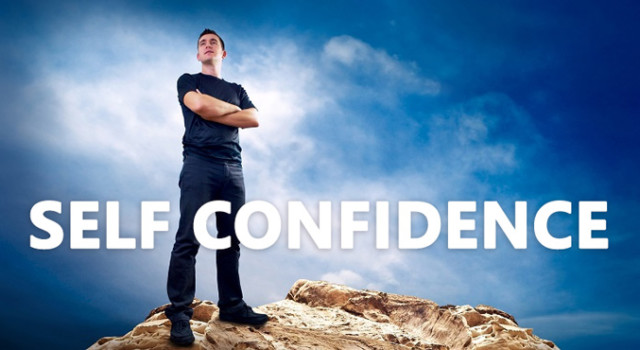Fear is our natural response to perceived danger, triggering fight-or-flight reactions which are sometimes crucial for our survival. On the other side, fears can be paralyzing. Fear of failure, rejection, embarrassment, and criticism disrupt the belief we have in ourselves and our abilities. Such fears are the most common reasons behind low self-confidence and obstacles in achieving our personal goals.
If you’re feeling low on the self-confidence meter, here are a few practical tips on how to activate your aplomb and push past your fears.
Take Up a Sport
Exercise can bring many great benefits for your body, but it does wonders for your mind too. It’s excellent for stress relief and fighting depression, and can also do wonders for boosting your self-confidence.
The thing is that many women tend to believe that some martial arts are too tough and unladylike and though they’re not exactly subtle, such sports are excellent for blowing off steam and boosting self-confidence. So, there’s no reason why you shouldn’t take boxing classes for girls, for example – as this way you’ll gradually activate your sense of readiness to react aggressively and positively towards fears, which you probably don’t get a chance to do often. Boxing awakens your fighting spirit and makes you ready to fight challenges in your real life too.
Other sports will do just fine too, as they’ll give your opportunities to achieve and learn more about yourself in the process of pursuing a desired outcome.
Avoid Negative Self-Talk
People with low self-confidence often have a very strict inner critic always watching and judging their every move. Negative self-talk has many toxic effects, such as higher stress levels, lowered self-esteem, and depression. It leads to a feeling of helplessness resulting in reduced motivation.
When you limit yourself with negative self-talk, and if you tell yourself you can’t do a thing you want, you start believing in that narrative, give up on trying, and reduce your prospects of succeeding. You should try fighting your inner critic by recognizing it when it starts nagging, and challenge it by cross-examination.
Whenever you catch yourself being negative towards your own abilities, ask yourself whether what you’re saying is truth or just an exaggeration, and that will help you decrease the power of negative self-talk.
Another good technique is to avoid telling yourself the things you would never say to your friends as well as minimize or simply try to change the negativity of the language you use.
Learn to Recognize Your Automatic Responses
Except for recognizing that sabotaging inner-critic, you should learn to recognize your other automatic responses too, such as your reactions to fear. This response can make us base our decisions on our fear, limiting our chances to live our lives fully and freely.
Here is how you can best identify whether you’re acting out of fear:
- You only see downsides. Your fear lets you see only the worst things that could happen.
- You are not thinking things through. Fear wants an immediate reaction, which is most often not necessary in our everyday lives.
- You avoid new things. Fear makes you stay in your comfort zone, and it makes you accept a painful but familiar situation, rather than facing the unknown.
- You don’t trust your instincts. Fear suppresses your intuition so that you don’t trust your gut instincts anymore.
- You avoid making decisions. Fear makes you second-guess your every choice.
When you recognize your automatic fear response, you will be able to give yourself more time and space to consider all the pros and cons and decide rationally.
READ ALSO: Top Skills for International Students to Have
Avoid Comparing Yourself to Others
As former American president Theodore Roosevelt once said, “comparison is the thief of joy”, and it’s the thief of your self-confidence too.
It seems difficult to avoid falling into this trap, especially with social media feeds we keep scrolling every day. Still, by becoming aware of your usual triggers, such as making a list of people or situations you often find yourself comparing, you can learn how to avoid them.
For example, if it’s a wealthy acquaintance who posts pictures of themselves traveling to destinations you are dying to visit too, try to remember that it’s only a social media presence of their lives you’re seeing and what you don’t really know what’s going on in their private lives underneath all that glamour.
Try to be grateful for the good things you have in your own life, and compare yourself only to the yesterday’s version of yourself, as it will make this comparison game you’re playing seem less important.
When you start believing that you’re able to accomplish your own goals, you’ll become more confident even if you face challenges along the way and you’ll be better equipped to overcome them.
